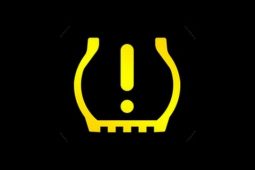Buying new tires doesn’t need to be a complicated or confusing process. If you’re not sure where to buy them or what to buy, this blog post will take the guesswork out of the process so you’ll be able to buy tires with confidence.
Before we discuss the details about tire buying, it’s helpful to know how to tell if you need new tires. Hopefully, you’re checking the air pressure and inspecting your tires once a month. When looking at the tires, you’ll want to see if there are signs of uneven wear or the sidewalls are bulging or cracking. You will also want to check the depth of the treads on your tires. That’s a very simple process that you can take care of in your garage or driveway. Using a penny or quarter, place the coin in one of the tread grooves and face the head downward and toward you. If you can see Lincoln’s or Washington’s entire head, you need new tires.
Selecting the Proper Tires for Your Vehicle
Buying tires doesn’t need to be a complicated process. There are a few things you need to know before you go looking for the tires. We’ll address them below. Before taking a look at the specifications, let’s talk about tire brands. There are many out there which can make tire buying a rather daunting experience. Let’s put you at ease. If you are pleased with the current tires you have on your vehicle, buy the same brand and model. If you think you want a change or budget is a concern, simply ask the technicians at Country Road Auto in Lincoln Park, New Jersey. We can help you select the right brand tire for your vehicle.
Now for the tire specifications. When buying new tires, here’s what you need to know:
- Tire Size / Rim Diameter: This is the first place to start. If you have the original factory-installed rims on your vehicle, you can find the tire size / rim diameter on the label that’s inside the door on the driver’s side. Write down those numbers.
- Speed Rating: Every passenger or light-duty truck tire has a speed rating. The speed rating is the tire’s ability to prevent heat build-up. You should buy a tire with the same or greater speed rating. Also, you should never mix tires with different speed ratings.
- Load Index: This measure identifies the amount of weight (or load) the set of tires can support at maximum air pressure. A passenger vehicle will have a lesser load index rating than a light-duty truck. Never install tires that have a lower load index than what was installed on your vehicle at the factory.
Still not sure what to purchase? The certified technicians at Country Road Automotive will assist you with your tire selection process. We can also mount, balance and install them for you. When we do, we will reset the Tire Pressure Monitoring System (or replace a sensor if one is faulty). Finally, we can perform a complete wheel alignment. Contact us now to buy new tires for your vehicle.
What is the Tire Pressure Monitoring System?
 If you have gone out on a cold, winter morning and started your vehicle to find this light lit up on your dashboard, that’s the Tire Pressure Monitoring System (TPMS) alerting you to low tire pressure. You’ll need to add air to one or more of your tires. When replacing the tires, the TPMS needs to be reset. Also, if you are receiving an alert that a tire pressure sensor is faulty, you will need to replace it when you buy and have your new tires installed.
If you have gone out on a cold, winter morning and started your vehicle to find this light lit up on your dashboard, that’s the Tire Pressure Monitoring System (TPMS) alerting you to low tire pressure. You’ll need to add air to one or more of your tires. When replacing the tires, the TPMS needs to be reset. Also, if you are receiving an alert that a tire pressure sensor is faulty, you will need to replace it when you buy and have your new tires installed.
Is a wheel alignment necessary when buying new tires?
Yes. If you have new tires installed but don’t have a wheel alignment performed, the tires will begin to wear unevenly and will eventually need to be replaced sooner than their life expectancy. A wheel alignment is a wise investment.
Country Road Automotive offers competitive pricing on many different tire brands. If you are in the Lincoln Park, NJ, area, think of us as your one-stop tire shop. Click here to make an appointment to have new tires installed on your vehicle.
photo credit: JonathanCohen contact patch via photopin (license)

